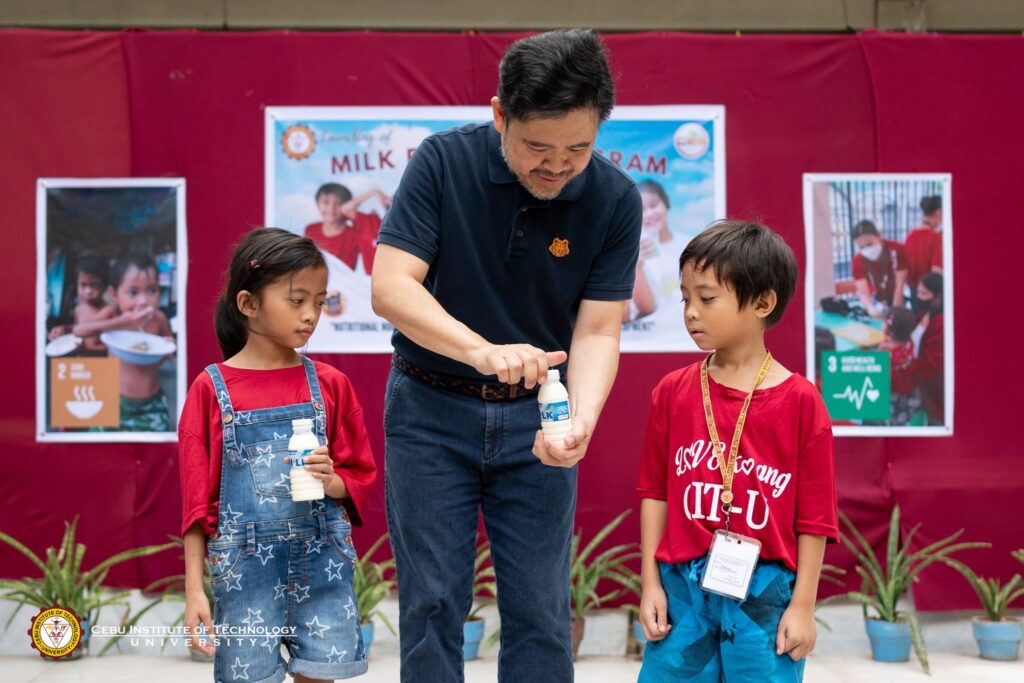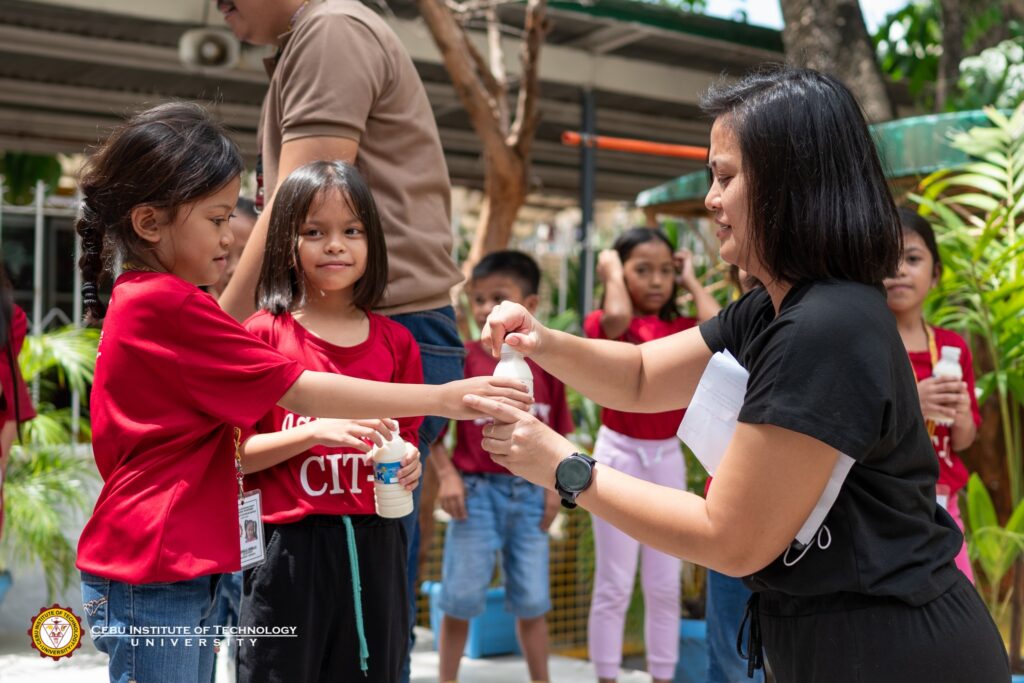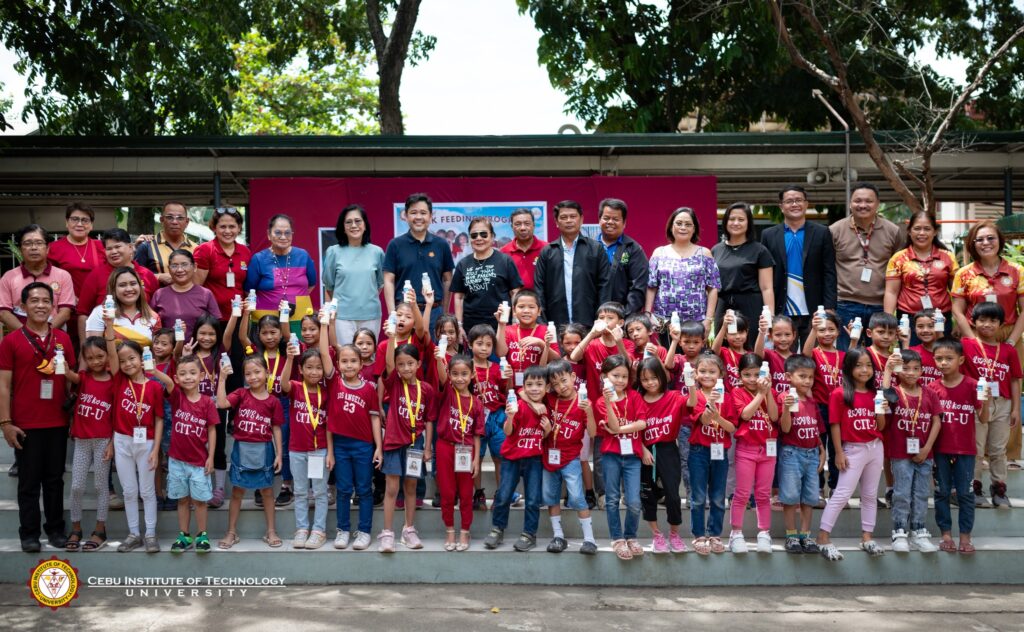
CIT University, in collaboration with LAMAC Multipurpose Cooperative, has embarked on a groundbreaking milk feeding program aimed at improving the nutritional intake and overall well-being of selected students from Labangon Elementary School and Labangon Bliss Elementary School. This 90-day initiative represents a strategic effort to build healthier communities and support the developmental needs of young students through essential nourishment.
At the heart of this initiative is the utilization of milk from local farmers’ carabaos, a strategy that not only addresses the nutritional requirements of children but also supports the local economy by preventing wastage and providing economic benefits to the farming community. This program marks a significant step towards achieving Sustainable Development Goal 3 (SDG 3): Good Health and Well-being, by directly enhancing the health of children in partner communities. It also contributes to SDG 2: Zero Hunger by combating malnutrition and ensuring that children have a solid foundation for healthy growth, making them healthier and more resilient.
CIT University is proud to be the first private university in Cebu City to launch such a program, demonstrating a profound commitment to community service and development. This initiative is bolstered by the university’s Community Extension Services (CES) program, which includes activities such as the collection of plastics, the involvement of mothers in operations, academic remediation, sports, and overall well-being initiatives. This comprehensive approach ensures that the milk feeding program is not just about providing nutrition but also about creating a supportive environment for the holistic growth of children.

The inspiration for this initiative was drawn from the University of the East (UE), under the leadership of President Zosimo Battad, who holds a Ph.D. in Animal Science. UE has been successfully running a similar milk feeding project for some time, managing it sustainably and setting a benchmark for how educational institutions can contribute to community health and development. Dr. Battad’s experience and success with the project at UE played a pivotal role in connecting CIT University with the Philippine Carabao Center, laying the groundwork for this transformative initiative. The University of the East holds a position on the board of trustees of the Philippine Association of Colleges and Universities (PACU), an esteemed organization where CIT University proudly serves as the president.
Furthermore, Dr. Karol Mark Yee, the Executive Director of The Second Congressional Commission on Education (EDCOM 2), emphasized the critical importance of nutrition and feeding as part of Early Childhood Care and Development, which is among the 28 priority areas identified by EDCOM 2. Dr. Yee also highlighted the importance of taking the Department of Education’s learning recovery efforts seriously, as nutrition and education are intrinsically linked in addressing the holistic needs of children.
CIT-U’s focus and alignment with the Sustainable Development Goals (SDGs) are inspired by its partnership with De La Salle University (DLSU). This collaboration has been instrumental in shaping the University’s approach to sustainable development and community engagement, ensuring that initiatives are grounded in best practices and aligned with global objectives.
Beyond addressing SDG 2 and SDG 3, this milk feeding program supports several other Sustainable Development Goals. It promotes sustainable agriculture and supports local economies (SDG 8: Decent Work and Economic Growth), ensures sustainable consumption and production patterns (SDG 12: Responsible Consumption and Production), and fosters partnerships to achieve these goals (SDG 17: Partnerships for the Goals), embodying a holistic approach to sustainable development.

In summary, the milk feeding program initiated by CIT University and LAMAC Multipurpose Cooperative is a visionary project that not only meets immediate nutritional needs but also aligns with broader sustainable development and community empowerment objectives. By drawing inspiration from the University of the East’s sustainable implementation of a similar project and leveraging the insights of leaders like Dr. Karol Mark Yee, as well as CIT-U’s partnership with DLSU, both organizations are setting a precedent for how educational institutions and cooperatives can collaborate effectively to make a significant difference in the lives of children and their communities.
